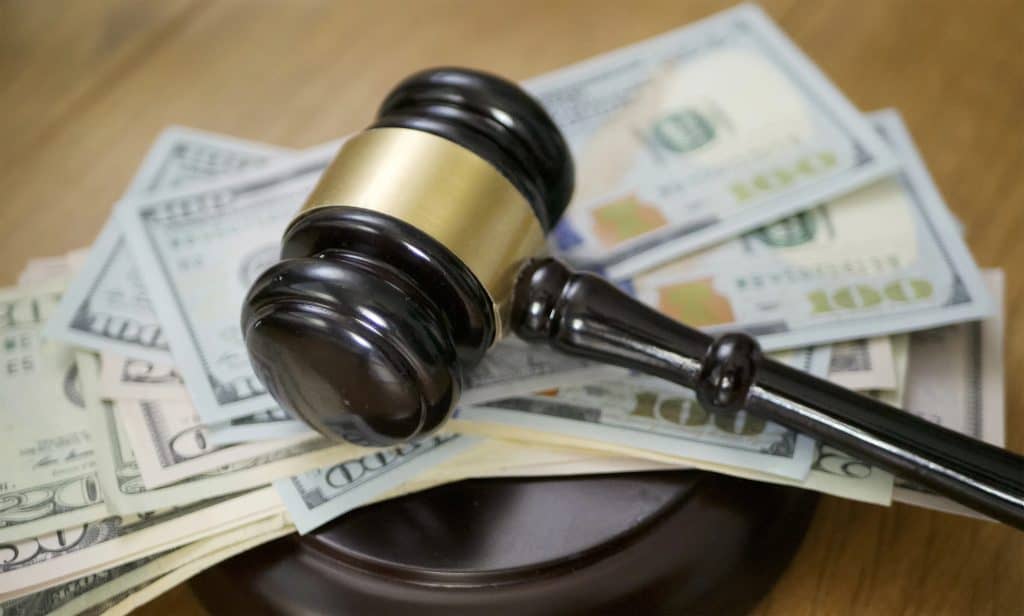If you’re in the business of creating content — whether it be literary, graphics, media, or anything remotely related to producing something possibly profitable out of scratch, then you should probably learn more about copyright laws. Just like any other possession, people have the right to own their original ideas and creations. Copyright laws exist to safeguard that right and ensure that people benefit from creating original content.
With the broad reach of the internet nowadays, it can be quite easy to simply look up content and claim it as yours. Acquiring a design without the consent of the creator and profiting from it is also something that people actually do. Whether it’s intentional or not, using someone’s creation without giving them what they’re due will definitely put you in a tight spot legally.
Table of Contents
What is copyright infringement?
Copyright infringement is all about using the protected work of an individual without permission and reproducing, displaying, or performing it for your own gain. It doesn’t matter if the act of infringement was done accidentally or not — as long as the damage was done, you will be legally bound to the laws that govern your local copyright laws. If you are a content creator who profits off your original creations, you should acquaint yourself with acquiring exclusive rights and copyright on your content.
Three major elements prove copyright infringement, to wit:
- Existence of valid copyright on a body of work (automatic or filed)
- Clear proof that the defendant copied the work (regardless of malicious intent)
- Unauthorized use that led to harm to the copyright owner financially, legally, and socially
Once these three have been proven, an individual can start to claim copyright infringement damages as a form of compensation.
Types of damages in copyright infringement

If you are a victim of copyright infringement, you should know more about the types of compensation you can be entitled to. Here are the types of damages you may be able to collect if you do not settle in a copyright infringement lawsuit:
Actual damages
An infringer can be liable for actual damages that the rightful owner has suffered due to their illicit use of content. In the first section of the relevant law, it is written that:
The copyright owner is entitled to recover the actual damages suffered by him or her as a result of the infringement…
However, not many people understand exactly what actual damages are and how they are measured. Indeed, this can be difficult to learn as it is not defined by law. But there are benchmark cases that can guide you in determining the actual damages encountered, and how much that could be.
One of the ways to compute actual damages is to see the documents that show just how much you’ve lost due to copyright infringement. If quantifying the actual damages proves to be difficult, a judge can also order the infringer to pay the royalty for the use of your material.
This process can be facilitated through specialized invoicing software, which not only aids in calculating and documenting damages but also streamlines the invoicing and royalty payment procedures for copyright holders.
It’s not enough to estimate or guess the actual damages caused by the infringement. You really have to measure it based on existing facts, which is why this can be difficult and lengthy to prove. If the cost of actual damages per body of work is going to be too little, some people opt not to get actual damages anymore as legal fees can also pile up by the hour.
Profits
Another way to seek damages in copyright infringement is by measuring the profits made by the infringer using the work you’ve originally made. As the copyright owner, you need to prove and present the gross revenue of the infringer and see the impact of your copyrighted work on the pirated content. After the deductible expenses and other elements that have contributed to the profit of the pirated work, you’ll be able to see how much you can be entitled to in terms of profit.
This means that apart from the actual damages that you have suffered from under the infringed work of the accused, you can also have access to the profits they have gained due to the use of your work.
Statutory damages
We’ve mentioned how getting actual damages and profits from the accused can be tricky and will take time. You will need to have money to spare when it comes to legal expenses, which are not always available for everyone, especially those fighting battles for smaller claims. If you decide not to take the route of profits and actual damages, another alternative you have is statutory damages.
Statutory damages are awarded to a copyright owner by a judge or a jury in suits concerned with copyright infringement. In general, statutory damages are compensation awarded to content owners per the number of works infringed. While the average cost of statutory damages ranges between $750 and $30,000, these can be as low as $200 or as high as $150,000 depending on the circumstances surrounding the infringement issue.
It is important to note that statutory damages are not automatically awarded in a suit. There are requirements needed for statutory damages, and you should have registered your work with the U.S. Copyright Office in order to receive statutory damages.
For example, in Sony BMG Music Entm’t v. Tenenbaum, the court was able to award the plaintiff a total of $67,500 in statutory damages ($2,500 per song) after it was found out that the defendant plagiarized the music that the plaintiff had registered to the USCO.
How do statutory damages work?
As mentioned, you need to register your work with the USCO before you can try to claim statutory damages. As a rule of thumb, you should register your work within 3 months of publication for you to have a strong claim on statutory damages. To know if you’re qualified for statutory damages, here are some scenarios you should review:
- If you release your work in July 2019 and register your work in November 2019, you will not be able to claim damages if another person used your work between the dates of July and November. This is because you did not register your work within the first three months after the release of your content.
- If you release your work in July 2019 and register it in September 2019, you can claim statutory damages even if the person used your work in August 2019. This is because you were able to register within the 3-month period.
- If you release your work in July 2019 and register your work in October 2019, you are allowed to claim statutory damages even if you didn’t meet the 3-month period as long as the plagiarized work was done after your date of registration.
Importance of statutory damages
As a plaintiff, you do not need to prove that you have lost a certain amount in statutory damages. All you need to do is to prove that the defendant has gone beyond the law and has infringed upon your right over your own creation. The establishment of statutory damages is crucial, as its existence implies that regardless if you lost a certain amount over your pirated creation or not, you deserve to be compensated if your work was used without your consent.
In the case of Arista Records LLC v. LimeWire LLC, LimeWire illegally distributed copyrighted and registered material willfully. The calculated statutory damages totaled to $1.4 billion (11,000 songs). However, the parties chose to settle out of court ($105 million) to get the deal over with. Even if the statutory damages weren’t formally claimed, the monetary compensation due to copyright infringement shows just how powerful the influence of statutory damages can be.
Of course, it is still recommended that you present economic evidence as a factor for your claim. It will help strengthen your case, and it will show the jury/judge that you did not just show up and collect your statutory damages willfully.
Frequently asked questions
Here are some of the most common questions when it comes to statutory damages in copyright infringement:
- Should people pursue actual damages or statutory damages?
Most people think that statutory damages may not be worth it, as these are awarded on a “per work” basis instead of actual damages and profit margins. However, statutory damages are easier to get and can potentially be higher than actual damages. This is the reason why plaintiffs prefer them after hearing the difference between actual versus statutory damages from their lawyers. - Would it be possible to exceed the standard compensation amount for statutory damages?
Yes, that is possible. However, this does not happen often. Most statutory damages that exceed standard amounts only get approved due to willful trademark infringement and the use of counterfeit marks. - Can plaintiffs recover legal fees?
While this is possible, it only happens in exceptional cases. It depends on the circumstance and the judge or jury deciding the case.
Seek help from a dependable legal representative
If you are interested in looking more into statutory damages, you should seek the help of experienced and dependable legal representatives. You deserve to get your cut as a creator, especially when you’ve continuously been rolling out one creative content after another. Learn more about statutory damages now and see what you can do to make sure that you get compensated for your work fairly!


